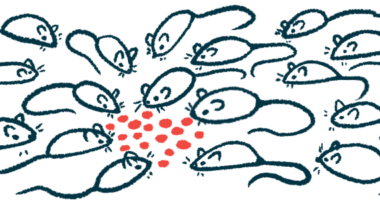Aro Biotherapeutics’ ABX1100 Wins FDA Rare Pediatric Designation
Substrate reduction therapies are made to inhibit the enzyme that makes glycogen

The U.S. Food and Drug Administration (FDA) has granted Rare Pediatric Disease designation to Aro Biotherapeutics’ ABX1100, an investigational substrate reduction therapy for Pompe disease.
This designation is awarded to experimental therapies for rare pediatric disorders with serious or life-threatening manifestations that primarily affect young people from birth to age 18. Companies receiving this designation are entitled to a Rare Pediatric Disease Priority Voucher upon approval of the experimental treatment. The voucher can be redeemed to receive a priority review of a subsequent product, which shortens the time to possible regulatory approval from the standard 10 months to within six months.
“Pompe disease affects patients of all ages but can be particularly devastating in children. We are committed to developing ABX1100 for children that suffer from Pompe disease in order to provide these pediatric patients with a new therapeutic option,” Mittie Doyle, MD, Aro’s chief medical officer, said in a press release.
Pompe disease is caused by mutations in a gene that makes an enzyme called acid alpha-glucosidase (GAA), which converts glycogen – a stored form of sugar – into glucose, the body’s main source of energy. People with Pompe disease have a faulty GAA or none at all, which leads to glycogen accumulating to toxic levels inside of cells. As a result, patients have muscle damage that ultimately leads to disease symptoms.
Enzyme replacement therapies are the only currently available treatment in the U.S. that address the condition’s underlying cause. They’re aimed at providing cells a working version of GAA to reduce and slow the progression of muscle wasting and heart problems.
ABX1100 is a so-called substrate reduction therapy that’s designed to inhibit production of the enzyme responsible for making glycogen — glycogen synthase 1 (Gys1) — therefore decreasing glycogen accumulation in the muscle cells.
The treatment includes a type of RNA called small interfering RNA that targets another type of RNA that’s necessary for protein production, dubbed messenger RNA (mRNA). This results in mRNA degradation, thereby blocking Gys1 protein production.
The therapy has recently been granted orphan drug designation by the FDA.
“Obtaining RPD [Rare Pediatric Disease] designation from the FDA represents an important step for Aro towards our goal of developing novel, tissue targeted genetic medicines for patients with rare diseases, and we are very pleased by the FDA’s recognition of the potential of ABX1100 in the pediatric Pompe community,” Sue Dillon, PhD, Aro’s co-founder and CEO, said.







